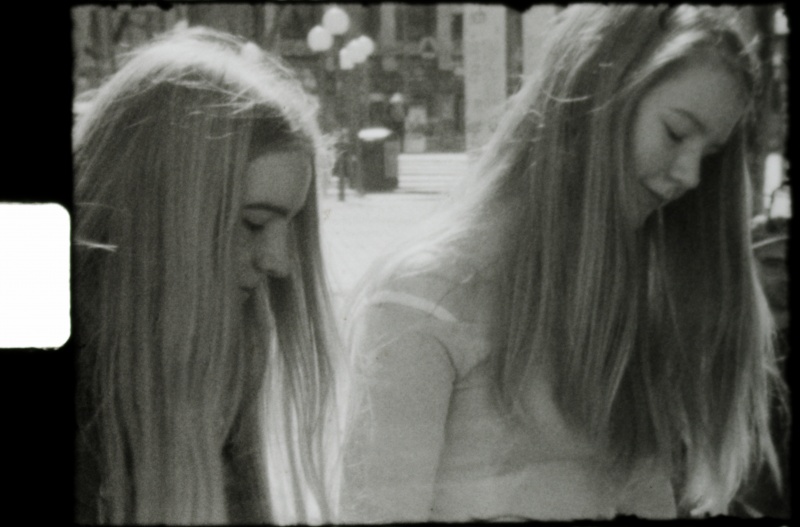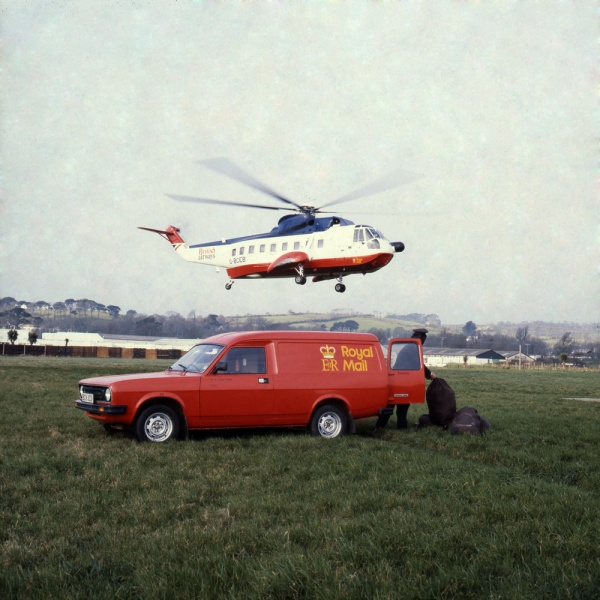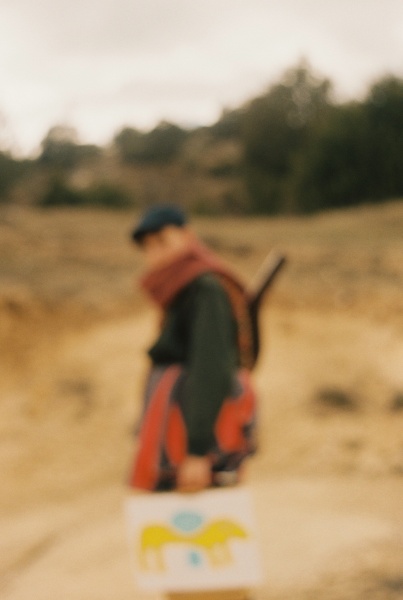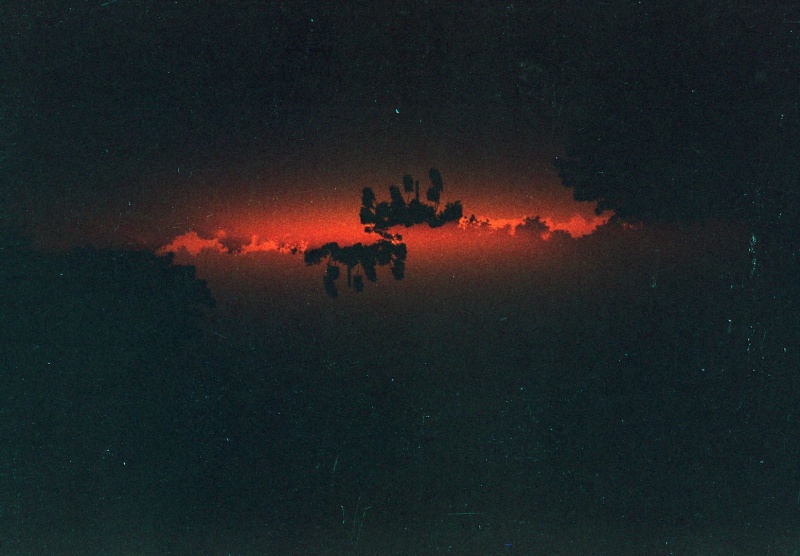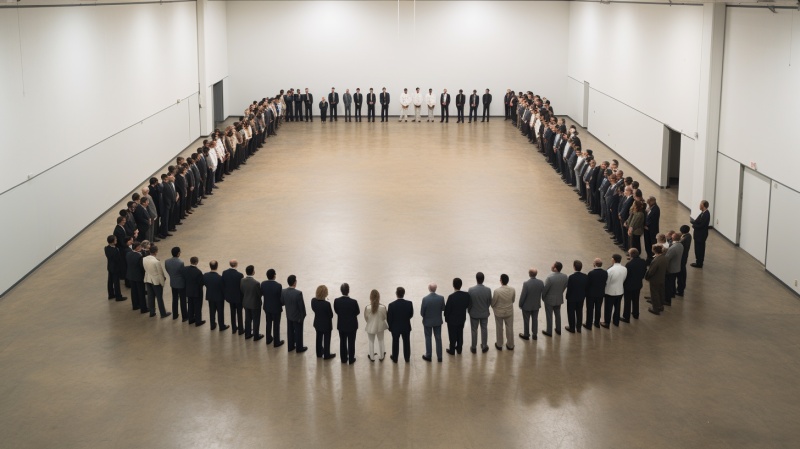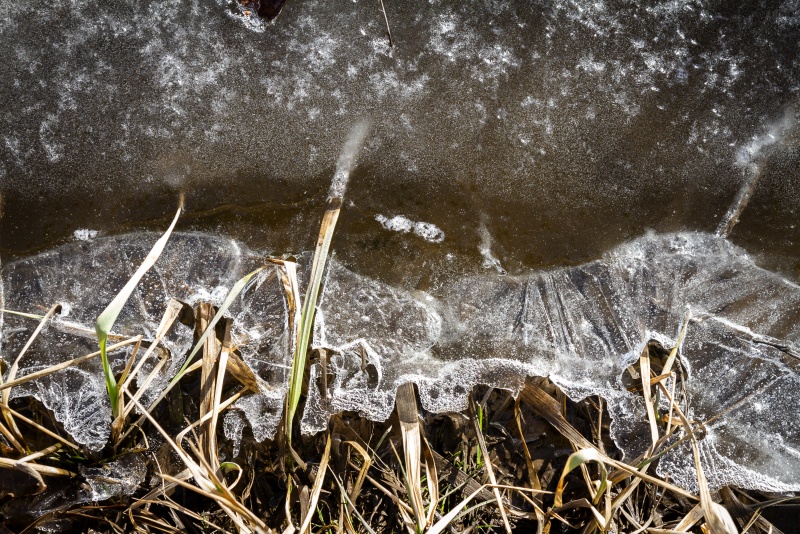Maria Elorza, Marieke Elzerman, Felipe Gálvez, Lucy Kerr, Mikele Landa and Cande Lázaro will develop their first and second feature films in Ikusmira Berriak
The residency programme of the San Sebastian Festival, Tabakalera and Elías Querejeta Zine Eskola celebrates its tenth edition at a time of great international consolidation after the Golden Shell for ‘O Corno’ and the award at the Quinzaine des Cinéastes for ‘Creatura’
Film projects by Maria Elorza, Marieke Elzerman, Felipe Gálvez, Lucy Kerr, Mikele Landa and Cande Lázaro were chosen from among 362 applicants to the tenth edition of Ikusmira Berriak, to take place in 2024. Of the total number of applications to the residency and audiovisual projects development programme organised by the San Sebastian Festival, the Tabakalera-International Centre for Contemporary Culture and Elías Querejeta Zine Eskola (EQZE), 13 belong to EQZE students and alumni, 18 to participants in the Nest section, 27 to Basque filmmakers (from the Basque Autonomous Community, Navarre of the French Basque Country whose project is mainly in the Basque language or which has the Basque community as its backdrop or subject), 100 to filmmakers from Spain and 204 correspond to the international category.
Maria Elorza, Felipe Gálvez and Lucy Kerr will develop their second feature film after the success of their respective débuts at San Sebastian, Cannes and Locarno, while Marieke Elzerman, Mikele Landa and Cande Lázaro will work on their first feature film after a promising career in short films. These are the six titles selected by the Ikusmira Berriak selection committee, consisting of representatives from Tabakalera, EQZE and the San Sebastian Festival:
- EQZE CATEGORY: Wash Over, by Marieke Elzerman (Netherlands)
- NEST CATEGORY: The Bow, by Lucy Kerr (United States)
- BASQUE CATEGORY: Caro Bastiano, by Maria Elorza (Vitoria-Gasteiz, Spain)
- BASQUE CATEGORY: Senda, by Mikele Landa (Bilbao, Spain)
- SPANISH CATEGORY: La Pastora / The Shepherdess, by Cande Lázaro (Badajoz, Spain)
- INTERNATIONAL CATEGORY: Impunidad / Impunity, by Felipe Gálvez (Chile)
For the first time in the history of Ikusmira Berriak, two Basque projects have been selected in the same call for proposals, taking into account the extraordinary moment that Tabakalera generation of Basque women creators are experiencing and, in particular, the track record of the two directors. Author of award-winning short films Ancora Lucciole / Still Fireflies (2018) and Quebrantos / Breaches (2020), Maria Elorza (Vitoria-Gasteiz, 1988) presented her feature film debut, A las mujeres y a los libros canto / To Books and Women I Sing in the New Directors section of the San Sebastian Festival, where it was recognized with the TCM Youth Award and a Irizar Basque Film Award special mention, the beginning of a career in festivals that culminated a few days ago with the Porto/Post/Doc Festival.
For her part, Mikele Landa (Bilbao, 1995), an EQZE alumni, was recognised at Euskal Zine Bilera with the award for best director for her first short film, Heldu. She was selected for Nest in 2022 with her short film Noizko basoa / When Does a Forest Begin, which also participated in Zinebi and Punto de Vista. The project for Senda, her first feature film, which she will develop at the residency, has gone through the Noka Mentoring and Elkarrekin Sortzen programmes.
In the Elías Querejeta Zine Eskola category, which is open to EQZE students and alumni, Wash Over, the first feature film by Dutch filmmaker Marieke Elzerman, was chosen. Her previous work, La voz rosa / The Pink Voice, was presented last year at the Rotterdam Film Festival.
In the Nest category, which is open to filmmakers chosen in the last five editions of the Festival’s international student film festival (2018-2022), The Bow, by Lucy Kerr (Houston, Texas, 1990), was selected. After her short film Crashing Waves, the American director’s first feature film, Family Portrait, received the Boccalino d’Oro for best director at the Locarno Festival this year, among other awards.
In the Spanish category, the project by Cande Lázaro (Badajoz, 1997), visual artist and filmmaker, whose short film Mar(i)cona has won awards at various festivals, was selected. La Pastora is a non-binary film that establishes a space for dialogue on the complexity of gender by rescuing the character of Florenci Pla, an intersexual maqui (a member of an anti-Francoist guerrilla group) from the Maestrazgo mountainous region.
Finally, Felipe Gálvez (Santiago de Chile, 1983) was selected with his debut work, Los colonos / The Settlers, in the Un Certain Regard section of the last Cannes Festival, where it won the Fipresci Prize. Los colonos was part of the Horizontes Latinos section of the San Sebastian Festival and is the candidate chosen by Chile to be nominated for the Oscar for best international feature film.
The residency will run for eight weeks divided into two periods. The six filmmakers arrive on 4 March at Tabakalera, where they will have time to work on the development of their projects in the Artists Space until 14 April. During that time, they will be receiving advice from the committee of experts and professionals expressly chosen for each project according to their needs. In June, each resident will receive a development grant to continue working on their project between the two periods of their stay. In September, coinciding with the dates of the Festival, they will return to San Sebastian to complete the two last weeks of the residency. During that stage they can present their project to industry professionals and will have a personalised schedule of meetings with potential partners interested in participating in their projects.
Golden Shell, award at the Quinzaine des cinéastes and forecasts for 2024
Ikusmira Berriak is experiencing a moment of great international consolidation: after the selection of El agua / The Water by Elena López Riera in 2022, in 2023 the Quinzaine des Cinéastes programmed Creatura by Elena Martín, winner of the Europa Cinemas Label. Last year, Manuel Abramovich and Mikel Gurrea became the first Ikusmira Berriak filmmakers to compete in the Official Section of the San Sebastian Festival, respectively receiving the Jury Prize for best photography, and the Irizar Prize for Basque Cinema and the FIPRESCI Prize. In 2023, it was the turn of All Dirt Roads Taste of Salt, by Raven Jackson, which, after its premiere at Sundance, won the Signis Award and a RTVE-Otra Mirada Award special mention in San Sebastian, and O Corno / The Rye Horne, by Jaione Camborda, which was awarded the Golden Shell by the jury chaired by Claire Denis.
Since its first edition in 2015, Ikusmira Berriak has supported the development of 44 audiovisual projects, of which 20 have been premièred and presented at international festivals, twelve have won awards, and the rest are in the development phase. Dormen os peixes de olhos abertos? / Do Fish Sleep With Their Eyes Open?, by Nele Wohlatz (Ikusmira Berriak 2018), is in post-production and, in 2024, the shootings of Diego Céspedes’ La misteriosa mirada del flamenco / The Mysterious Gaze of the Flamingo (Ikusmira Berriak 2020), Eduardo Crespo’s La gruta del viento / The Wind’s Cave (Ikusmira Berriak 2021) and Irati Gorostidi’s Anekumen (Ikusmira Berriak 2022) are planned.
MARIA ELORZA (SPAIN)
Country(ies) of production: Spain
Hamburg, 1945: a young German girl and an emaciated foreigner meet in secret in the ruined city, among parks and barred barracks.
Donostia, 2022: a family investigates and speculates about a love letter discovered in the family home. It is dated during World War II, signed by a German woman named Edith and addressed to the director’s grandfather, who spent two years as a captive in various Nazi labour camps. Meanwhile, the sparrows flit around the city.

The director intends to explore an element of family history in a double way: on the one hand, through the tools of fictional cinema, understanding memory as fabulation; on the other hand, by taking the paths of non-fiction, treating cinema as a path of research and experimentation. The central theme of this narrative, which is presented as a diptych, is a written document, a love letter in the context of the World War II, in which the personal, the political, the historical and the affective come together.
Maria Elorza, director
IMPUNIDAD / IMPUNITY
FELIPE GÁLVEZ HABERLE (CHILE)
Country(ies) of production: Argentina
In October 1998 the dictator Augusto Pinochet was arrested in London. While the trial was going on, there was an endless series of intrigues and plots involving the British court, international intelligence services and extremists. His supporters did everything they could to release him 'by reason or by force', engaging in a race against time involving robberies, espionage and kidnappings.

'Impunity' explores the efforts made to write the history of the 20th century by protecting those who defended an economic model based on their own interests. In a dialogue with the political thriller, black comedy and the spy film, the film sets out to reflect on the impossibility of seeing justice done, not as any one country's decision but as the implacable determination of a system that seeks to maintain the status quo by all means".
Felipe Gálvez, director
LA PASTORA / THE SHEPHERDNESS
CANDE LÁZARO CIENFUEGOS (SPAIN)
Country(ies) of production: Spain
Two people united through time. A binomial materialised in a single body.
By establishing a direct and close dialogue between the past-present and the rural-urban, this non-binary film brings to the table themes such as the construction of identity, the outsider’s gaze and the dichotomous through a binomial whose main objective differs greatly from these major concepts. He just wants to be quiet, and he is quiet on the mountains, with his sheep.

"For me, getting to know Florenci was the equivalent of imagining that I could grow old. 'La Pastora' is precisely about creating these new imaginaries. Through the personal experiences of both, 'La Pastora' aims to provoke an earthquake in the dichotomous systems of sex-gender, cinematic genre, time and space, mistrusting traditional discourses and languages. This film, even though it deals with such complex issues, does not aim to intellectualise the experiences of its characters. Deep down, 'La Pastora' is an ode to finding the safe space where one can simply be. No more".
Cande Lázaro, director
SENDA
MIKELE LANDA EIGUREN (SPAIN)
Country(ies) of production: Spain
On a road without pavements there is room for three worlds. There are Bakary, Oihana and Agustina looking at each other. The experience of one belies the truth of the other; but they have decided to come closer together and set out to find a cure. In this way, they will learn to look through each other’s ears and listen with their skin. The smell of wet asphalt, the weeds growing on the shore, the wounds on the gums, the old songs, the figs, the sweat, the dew and the silences will be the ingredients of the ointment that will cure the illness.

"The seed of 'Senda' is based on encountered experiences, memories and notes accumulated in notebooks. In 2019, I travelled to Africa for the first time, for work. Mali showed me material consequences of events that I consider impossible. Since then, I reflect on and hold on to one statement: one’s own truth can come face to face with the opposite truth of another person. Even if they contradict each other, none of them can claim that the opposite does not exist. That’s why I search, I take shelter in the lights and in the darkness through cinema; where the limits between the human, the magical and the natural are blurred. I take this film in my hands and mould it so that Oihana, Agustina and Bakary acquire enough courage and vulnerability to transform each other, without ceasing to be".
Mikele Landa, director
THE BOW / THE BOW
LUCY KERR (USA)
Country(ies) of production: USA
Set in 2004, The Bow follows Angela, a young woman poised to be presented to Houston high society as a debutante. A college sorority girl, she juggles classes, parties, and a growing reliance on Adderall. After a tackle at a football game renders a player incapacitated, Angela develops an inappropriate fascination with his suffering. Angela begins a slew of debutante rehearsals and preparations, and when the debutante arrives, she transforms into a vessel through which inexplicable force descends.

'The Bow is rooted in the organization of bodies within the frame, driven by a desire for control over the body and social status. This theme manifests in social rituals, including sorority performances, debutante rehearsals, and sporting events, creating an oscillation between control and vulnerability and ultimately resulting in an overwhelming fragility. While conventional notions of demonic possession suggest a battle between good and evil, folkloric insights propose a more intricate origin: the depths of our own psyche".
Lucy Kerr, director
WASH OVER
MARIEKE ELZERMAN (NETHERLANDS)
Country(ies) of production: Netherlands
Josephine, fiercely independent, dedicates herself to reintroducing bearded vultures in the Spanish Pyrenees. Her passion jeopardizes the organization when she risks everything to rescue a vulture, resulting in a fall that shatters her leg. Removed from the organization, she reluctantly returns to the small Dutch island where she was born. Despite their separation, her parents remain intertwined in dependence, a reality Josephine despises. Encounters with new and old friends on the island challenge her perceptions, inviting her to embrace vulnerability and learn the profound freedom that can arise from a different kind of dependence.

'In ‘Wash Over’, I explore the contrast of dependency, navigating the fine line between exploitation and the empowering force of support and connection. The narrative follows an independent woman gradually giving in to her unconscious longing to be seen and heard. This experience is driven by tender interactions, both fictional and real, with the island's inhabitants. I aim to approach filmmaking with an emphasis on attention—dedicating time to connect with the island and its people to intricately weave their stories into the character's journey".
Marieke Elzerman, director
